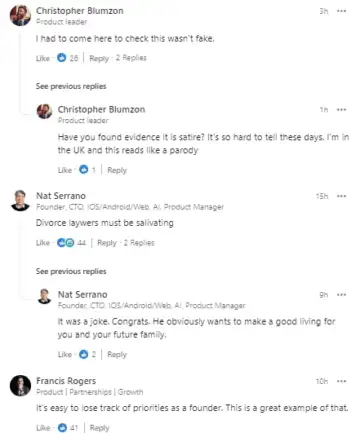In a LinkedIn post that rapidly went viral, Torrey Leonard—co-founder and CEO of the innovative AI startup Thoughtly—drew attention to a striking image of his co-founder, Casey Mackrell. There he was, resplendent in his wedding attire, deeply engrossed in the digital world, wielding his laptop amid the joyful chaos of his own nuptials. The moment captured Mackrell working diligently on a pull request, a crucial fragment of software development, while the festivities unfolded around him.
Leonard elaborated on the situation, revealing that the fledgling company had just clinched a new client, presenting a pressing two-week deadline that serendipitously aligned with Mackrell’s wedding date. In an unusual twist of fate, Mackrell found a sliver of time on this monumental day to address work obligations. “Congrats, Casey—now please, go take some time off,” Leonard cheekily remarked in his enlightening post.
A Spark of Controversy: Work-Life Balance Under the Microscope
However, what was intended to showcase dedication morphed into a broader dialogue regarding the pervasive pressures woven into the fabric of startup culture. Social media erupted with critical voices questioning the merit of such relentless work ethics. One user pointedly remarked, “Encouraging individuals to sacrifice their personal life and mental wellbeing isn’t the brag you think it is.” Another chimed in, “This is nothing to celebrate! A man working on his laptop at his own wedding? Talk about being completely tone-deaf.”

A Cautionary Parable for the Startup Sphere?
This incident has ignited a fiery debate about the nuances of startup culture, where the lines between personal joy and professional obligation often blur, becoming a convoluted badge of honor. It serves as a poignant reminder of the importance of stepping back, logging off, and cherishing those personal milestones—no matter how enticing the relentless grind of a startup may appear.

